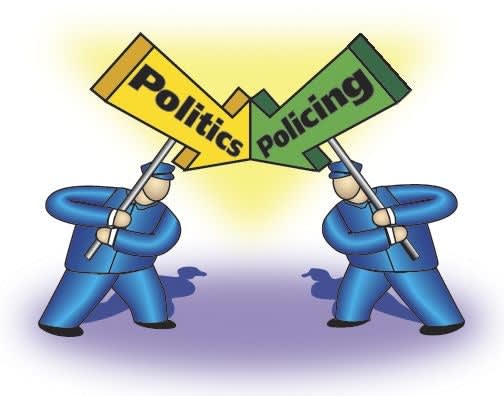Without so much as a heads-up, my boss called me into the division conference room, which was full of a dozen VIPs. This was a group of black businessmen and ministers, very socially active and influential figures in our almost entirely black community. They were smiling.
"Glad you could join us," my boss beamed. "These gentlemen were just briefing me on the problem at (he named a park), and though I'm understandably upset we weren't on top of it, I'm so pleased they could fill us in." He swept the room with a broad, encompassing hand. "But then," he grinned, "they really have their fingers on the pulse of the community." They liked that. He liked them liking it. I was hearing faint alarm bells.
The boss went on to explain how hundreds of young people "just looking for trouble" were gathering in the local park in ever-increasing numbers on warm summer weekends doing God-knows-what, and if we didn't take forceful action right now, "something could happen."
Decisions had already been made. Plans would be drawn up for large-scale tactical "sweeps" of the park. Mass arrests would be made for all violations.
"The lieutenant will start planning the sweeps now," the boss said. "Won't you?"
"Uh, no, sir," I said. The VIPs looked stunned. I asked my boss if I could talk to him-outside.
I had worked that division before, back in the "Bad Old Days" of the late '60s and early '70s. The park was a powder keg then, and plenty of people were trying to light it. Now, it was a different community, and a different park.
On any given warm weekend, 500 to 700 young people, virtually all black and about 17 to 25 years old, gathered in the park. I saw some beer passed around. And, oh no, some of those kids were probably under 21. There was drug-dealing. Very little, occurring furtively but clumsily in the parking lot.
I'm not a trained lip-reader, but I'm pretty sure what I saw was guys talking about girls and cars and sports and jobs, and girls talking about boys and school and jobs and movies. The vast majority of them were openly engaged in frequent raucous laughter.
I tried to explain that to the boss. He wasn't buying it, I think, because he was thinking about the reaction of those citizens in the conference room.
I pointed out that 15 miles away there were 20,000 kids doing a lot more drinking, and dealing much more drugs, and there were no "sweeps" or mass arrests.
"But that's the beach!" he choked.
And the big, silent, neon banner overhead read, "But those kids are white."
The fact was, the amount of serious crime in the park was minimal. Property damage was virtually zero. But, I told him, all it would take was a couple of hard-assed, heavy-handed sweeps of the park, and we'd have all the violence and property damage we could handle, and more.
My boss wouldn't listen. He pronounced the sweeps a done deal. He said the action was perfectly legal, and I should get to work on it. That was the second time I said, "No, sir."
It might've been legal, but it sure wasn't ethical or moral. I told him we could ask Narcotics to check on the dope deals and make arrests away from the park. Two-officer teams could stroll through the park a couple of times on weekends, giving only warnings whenever possible and appropriate, and making it clear to the kids that the cops weren't there to chase them out. I suggested he go back in and sell the VIPs on "precision, surgical strikes, to avoid fomenting unrest in the community." They bought it, grudgingly.
It worked. But it wasn't over, because for some, the issue of the park paled in significance compared to the issue of a police lieutenant who said, "No, sir."
"Who are you to decide what's ethical or moral?" a deputy chief roared. "You were given a legal order! What do you think would happen if every lieutenant-or every cop-refused an order because he thought it wasn't ethical or moral?"
Well... What, indeed?
John Mackenzie is an officer's pseudonym.












